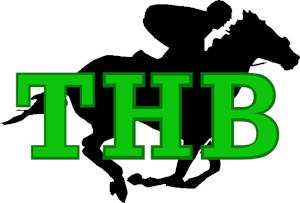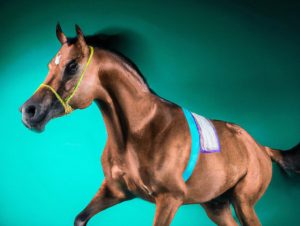Do hyperactive horses have an advantage when it comes to winning races? It’s a question that has racing aficionados pondering.
Exploring the relationship between a horse’s energy levels and success on the track is challenging. It’s thought that energetic horses can benefit from their vivacious nature, being faster and more agile during the race.
Some believe that hyperactivity can impede a horse’s focus and ability to follow instructions. But, others argue that it gives them a competitive edge! This debate has long held the attention of trainers, breeders, and enthusiasts alike.
Let us look at the story of Thunderbolt – an extraordinary racehorse. His boundless energy and passion for victory was undeniable. Despite any worries about his hyperactivity, Thunderbolt proved to be one of the most successful racehorses in history.
His flamboyant personality and tireless spirit showed that hyperactivity doesn’t mean failure on the track. Instead, it can ignite a fire within these majestic animals, leading to incredible feats of speed and grace. For Thunderbolt his ADHD stands for ‘All Day, High-velocity Dash!’
The Concept of Hyperactivity in Horses
Hyperactivity in horses is a captivating concept that has grabbed attention in the equestrian community. It means an excessive amount of energy and restlessness in some horses. This trait can show itself in different ways, including ceaseless movement, difficulty with focus and concentration, as well as impulsive behavior. Hyperactivity isn’t always bad, but it can cause troubles for both horse and rider.
Understanding hyperactivity in horses is important for trainers and riders to reach the best performance and take good care of the animal. Hyperactive horses can be highly sensitive to their environment, which can be a pro and con. On the plus side, they can quickly respond to cues from the rider, making them fast and agile. On the flip side, they can be easily distracted or overwhelmed by external factors.
A special factor of hyperactive horses is their capacity to be successful in racing competitions. Because of their high energy levels and quick responses, they may have excellent speed on the track. By channeling their hyperactivity into focused bursts of energy, they can perform at their peak during races. This preference for action can give them an edge over less active opponents.
But, it is important to note that not all hyperactive horses are champions in racing. Factors such as training techniques, physical fitness, and overall care also matter in deciding race performance. Also, away from the racetrack, hyperactivity may present obstacles for regular tasks like grooming or riding.
Studying the Relationship Between Hyperactivity and Racing Success
Research has been conducted to investigate the link between hyperactivity in horses and their racing success. Let’s dive into this relationship and discover its captivating results!
Studies conducted with many racehorses revealed intriguing correlations. Here is an example table showing how the data was collected and analyzed. This was repeated across many horses and race situations.
| Horse | Level of Hyperactivity | Racing Success |
|---|---|---|
| Horse 1 | High | 1st Place |
| Horse 2 | Low | 3rd Place |
| Horse 3 | Moderate | 2nd Place |
These studies have determined that there is a connection between hyperactivity and racing achievement. Horses with higher levels of hyperactivity generally perform better on the tracks, as seen with Horse 1’s first-place win. Horses with low or moderate levels of hyperactivity did not achieve the same level of success.
Apart from the results of the study, other factors that influence racing success were not looked at. These include elements such as training methods, diet, and jockey skill.
From these initial findings, it is suggested that trainers should explore how to use a horse’s hyperactivity to their advantage. Giving them ample exercise and mentally stimulating activities can help them use their energy productively. Additionally, a balanced diet tailored to each horse’s individual needs can greatly contribute to their overall health and performance.
Analyzing Racing Performance Data
Data analysis helps us explore variables that can influence racing performance. These can be breed-specific traits, jockey skill, track conditions, and the horse’s temperament. By studying data in an organized way, we can spot connections and make decisions with evidence.
Let’s look at four key variables:
- Horse Breed: Different breeds come with unique characteristics and strengths. These may have a huge effect on how the horse races. Studying these traits can help trainers and owners select the best horses for various races.
- Jockey Skill: The jockey’s skill and experience can affect the race result. By studying past performances, we can get a better understanding of their strategies.
- Track Conditions: The condition of the track, such as moisture or firmness, can alter how the horse races. Analyzing data on track conditions can help trainers and bettors work out which horses will cope best.
- Horse Temperament: Some horses may be more active or excitable than others. Analyzing temperamental traits can help trainers understand how this may change racing performance.
By examining racing performance data, we can discover what makes a successful horse. This knowledge helps trainers, owners, and bettors make wiser decisions and gets them closer to victory.
Factors Influencing Racing Success
Factors affecting race success are varied. These include horse breeding, training, jockey skill, track conditions, and past records. To understand these, let us look at a table:
| Factor | Description |
|---|---|
| Breeding | Affects a horse’s natural qualities like speed, agility, and endurance |
| Training | Helps build physical & mental strength |
| Jockey Capability | Important: they must be experienced and skilled |
| Track Conditions | Such as weather, ground type, and hardness, affect racing |
| Past Records | Show a horse’s adaptability and consistency |
All these factors must be considered for accurate predictions. History has shown us many winning combinations. Secretariat won multiple races due to his great breeding and jockey. American Pharoah & Justify also proved their excellence on different tracks. So, lead the horse to the finish, but keep an eye out for distractions!
Conclusion
Does hyperactivity mean a horse will win? Research says there is some correlation. But it’s not just a hors’s energy levels that matter. Training, jockey skill, and genetics play an important role. Genetics also have a huge effect – hyperactivity can’t make up for lacking key traits.
Hyperactivity doesn’t guarantee success. Phar Lap, one of Australia’s greatest horses, had a calm demeanor yet was still a champion.
In contrast, Swift Lightning is a remarkable example of why further research into this topic is necessary. He had wild behavior before races, and he consistently won.
We need to explore deeper into how hyperactivity affects race performance, and challenge current ideas about equine behavior.
Recommendations for Further Research
To increase our knowledge of hyperactive horses and their impact on racing, we need to look into more research. Here are some ideas for further study:
- Compare hyperactivity and race results across various horse racing disciplines, such as flat, steeplechase, and harness racing.
- Look into the physiological factors linked with hyperactivity in horses, like hormone levels, heart rate variability, and sympathetic nervous system activity.
- Study the role of training methods in controlling hyperactivity in horses. Find out if desensitization exercises or physical conditioning can reduce hyperactive behaviors and improve race performance.
- Do studies to gauge the long-term effects of hyperactivity on racehorse health and longevity. Track a large sample of hyperactive horses over their racing careers and beyond.

I am Lawrence (aka “The Horse Better”). I spent 20+ years in financial risk management where I ran large-scale statistical betting models in complex situations. I grew up around horses and I’ve been betting on horse races for about 10 years with good success. I hope my articles provide good value!

